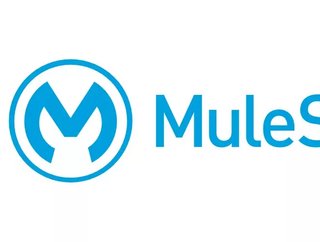MuleSoft outline seven trends to watch in 2022

From delivering improved user experiences and innovation at speed, 2022 promises many new emergent trends. Software company Mulesoft, integration and API platform specialists, suggest that composable businesses will take centre stage in the year ahead.
1. Connected hybrid experiences
Frictionless hybrid experiences will be the new normal in 2022, as they are seen as key to maximising productivity and retaining the best talent.
Key points:
- Employees expect work lives to be as connected as personal ones
- IT leaders to support by giving easier access to the apps and data needed for the job, wherever staff are based
- Fully connected workplace experiences to be created in a secure and governed way
2. Interchangeable building blocks of composable business
Agility is seen as crucial to keeping pace in the 'always-on' digital economy, giving rise to the composable business in 2022, where digital capabilities are composed from existing applications using APIs, rather than being built from scratch every time.
Key points:
- Businesses to turn digital capabilities and data into secure and discoverable building blocks
- Employees can reuse blocks to compose their own solutions
- RESTful APIs to be phased out in favour of event-driven AsyncAPIs and data-driven GraphQL APIs
- The added flexibility and extensibility will support fluid, real-time interactions consumers expect.
3. Enter the ‘business technologist’
Business technologists are employees who sit outside of IT. Musoft believes that these will be empowered to drive their own digital innovation, alleviating IT bottlenecks and freeing up more time for innovation.
Key points:
- Organisations to embrace low or no-code approaches and AI-assisted development tools
- Business technologists can subsequently create connected experiences without needing to learn how to code
- 80% of organisations have a mature approach to enabling non-IT users to easily integrate apps and data sources through APIs
- business teams will continue to work more closely alongside IT to accelerate innovation and drive greater value.
4. Hyperautomation as a driving force
Considered to soon be a vital part of modern digital enterprise, hyperautomation will be scaled across the entire enterprise. This means companies automate anything that can be automated.
Key points:
- Increasing amounts of data lead to challenges of secure integration, automating and workflow management
- Multiple silos of data and systems at scale creates a significant task
- Organisations will need to combine integration, API management, and automation
- This will scale and increase the speed of work to streamline sales operations and customer case resolution
5. Security-by-default to become essential
While the shift to the composable business accelerates digital innovation, it also invites cybersecurity risks, potentially exposing organisations and their customers to financial and reputational damage.
Key points:
- API attacks have become a frequent threat vector.
- Technology platforms used to support and manage APIs will need to be “secure-by-default”
- If faced with a range of configuration options, the most secure option will always be offered by default
- While users may choose a less secure route, secure-by-default platforms will prompt and explain the risks.
6. With hybrid comes added complexity
The pandemic may have forced a move to hybrid and multi-cloud environments, which provided many organisations with the flexibility needed to navigate the challenges. This has also increased the complexity of modern digital ecosystems.
Key points:
- Universal API management will be at the heart of solving the complexity
- Growing need for universal platforms that enable organisations to manage their APIs wherever they are created, whatever standards they are governed by, and whatever gateways they have
- Allows enterprises to run and catalogue APIs anywhere, centrally uncovering issues and enforcing policies in any underlying environment.
7. Single source of truth key to the data-driven business
The world has been witnessing a data explosion over the last 18 months. Organisations looking to integrate, analyse, and act on this massive increase in data have faced major challenges.
Key points:
- IT complexity, proprietary systems, and data silos due to the sheer volume of data now available
- Solution lies in breaking down the silos across the enterprise to create a single source of truth.
- APIs: Why are your APIs primary targets for attackers?Digital Transformation
- Into the Breach: Breaking Down 3 Top API Security BreachesCloud & Cybersecurity
- Employees can help prevent phishing attacks, say BlackBerryCloud & Cybersecurity
- 5 mins with Tom Kellermann, cyber security leader at VMwareCloud & Cybersecurity






